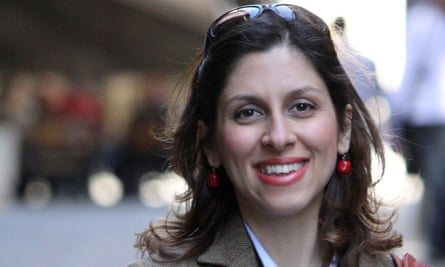Ratcliffe slams government inaction over wife's detention in Iran as he enters 20th day on hunger strike

Richard Ratcliffe, the husband of Iranian detainee Nazanin Zaghari-Ratcliffe, on the 19th day of his hunger strike outside The Foreign, Commonwealth and Development Office in London, following his wife losing her latest appeal in Iran
THE husband of Nazanin Zaghari-Ratcliffe marked day 20 of his hunger strike today after a meeting with a Foreign Office minister left him feeling “deflated.”
Richard Ratcliffe described being “stuck in the same status quo” after the discussion about his wife’s continued detention in Iran with James Cleverly on Thursday.
He accused the British government of not doing enough to resolve the situation.
Mr Ratcliffe, who began his hunger strike outside the Foreign, Commonwealth and Development Office (FCDO) in London on October 24, said that he came away from the meeting with “no hope.”
His update from Mr Cleverly, lasting a little over 30 minutes, took place after talks between British government officials and Iran’s deputy foreign minister Ali Bagheri Kani.
According to her family, Ms Zaghari-Ratcliffe was told by Iranian authorities that she was being detained because of Britain’s failure to pay an outstanding £400 million debt to Iran.
Mr Ratcliffe said that the government “clammed up” and would not talk about the debt during his discussion with them.
But Britain reportedly told Iran that it could not pay the debt owing to restrictions brought about by sanctions, according to Tehran’s deputy foreign minister.
Mr Bagheri Kani, according to the Guardian, said that the two sides had agreed to a payment of less than £500 million taking interest into account, adding: “Now what the UK government are bringing up is the limitations on banking interactions, saying it is a difficulty, and finally they cannot do it.”
He said that the issue of repaying the debt was separate from the detention of British-Iranian nationals but said: “If these incidents were resolved, it would naturally have to influence the relationship between the two countries.”
A spokesman for the FCDO said that Mr Cleverly had then met Mr Ratcliffe “to reaffirm our commitment to reuniting his wife with her family in the UK.”
But Mr Ratcliffe said that he felt “a little bit more deflated,” saying: “I don’t feel they’ve given a clear enough message to Iran that hostage-taking is wrong.
“I don’t think there are any consequences to Iran at present for its continuing taking hostages of British citizens and using them.”
Amnesty International UK chief executive Sacha Deshmukh described the meeting’s outcome as “bitterly disappointing ” and called on Prime Minister Boris Johnson to “personally intervene” in the case of Ms Zaghari-Ratcliffe and other detainees.





